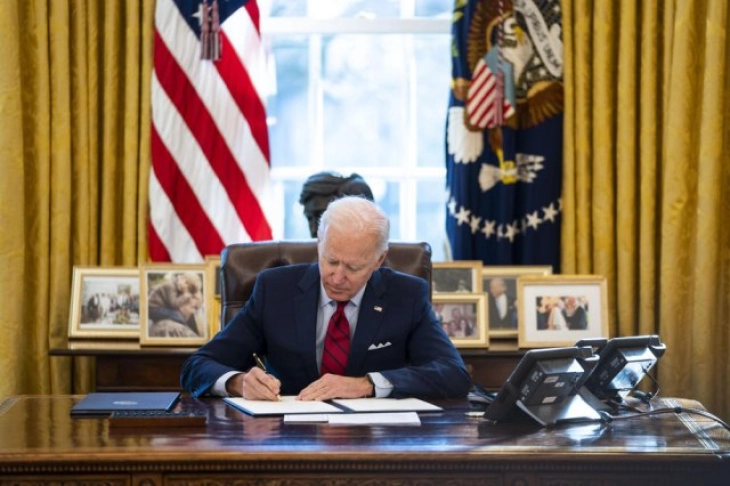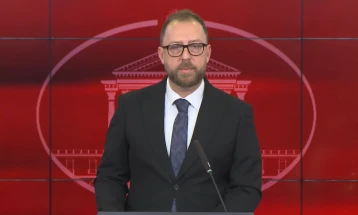U.S. President Biden extends executive order on national emergency in Western Balkans
- United States President Joe Biden has extended by a year the national emergency declared in Executive Order 13219 with respect to the Western Balkans.
- Post By Ivan Kolekevski
- 11:46, 15 June, 2024

Washington, 15 June 2024 (MIA) - United States President Joe Biden has extended by a year the national emergency declared in Executive Order 13219 with respect to the Western Balkans.
The actions of persons threatening the peace and international stabilization efforts in the Western Balkans, including acts of extremist violence and obstructionist activity, and the situation in the Western Balkans, which stymies progress toward effective and democratic governance and full integration into transatlantic institutions, continue to pose an unusual and extraordinary threat to the national security and foreign policy of the United States, the White House said in a press release.
On June 26, 2001, by Executive Order 13219, the President declared a national emergency with respect to the Western Balkans pursuant to the International Emergency Economic Powers Act, to deal with the unusual and extraordinary threat to the national security and foreign policy of the United States constituted by the actions of persons engaged in, or assisting, sponsoring, or supporting, (i) extremist violence in the former Republic of Macedonia (what is now the Republic of North Macedonia) and elsewhere in the Western Balkans region, or (ii) acts obstructing implementation of the Dayton Accords in Bosnia or United Nations Security Council Resolution 1244 of June 10, 1999, in Kosovo.
The U.S. President subsequently amended that order in Executive Order 13304 of May 28, 2003, to take additional steps with respect to certain actions that obstruct implementation of, among other things, the Ohrid Framework Agreement of 2001 relating to Macedonia (what is now the Republic of North Macedonia).
On June 8, 2021, the U.S. President signed Executive Order 14033, which expanded the scope of the national emergency declared in Executive Order 13219, as amended, finding that the situation in the territory of the former Socialist Federal Republic of Yugoslavia and the Republic of Albania (the Western Balkans), over the past two decades, including the undermining of post-war agreements and institutions following the breakup of the former Socialist Federal Republic of Yugoslavia, as well as widespread corruption within various governments and institutions in the Western Balkans, stymies progress toward effective and democratic governance and full integration into transatlantic institutions, and thereby constitutes an unusual and extraordinary threat to the national security and foreign policy of the United States, reads the press release.
MIA file photo







